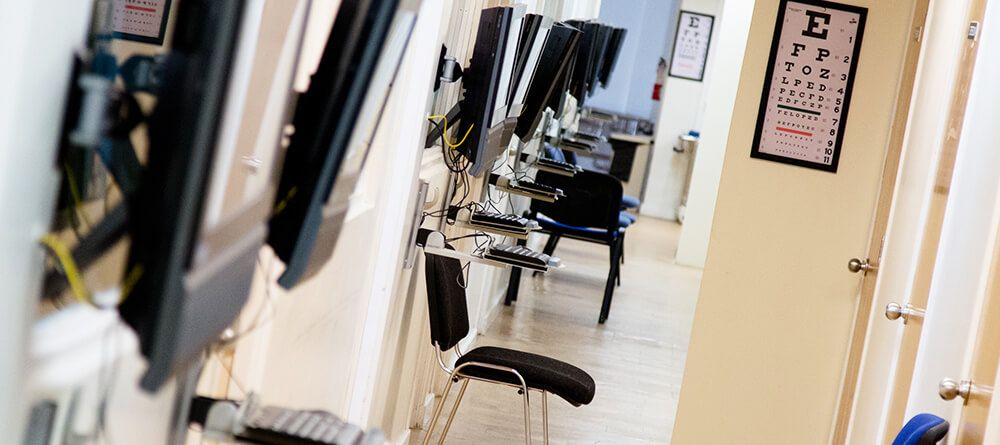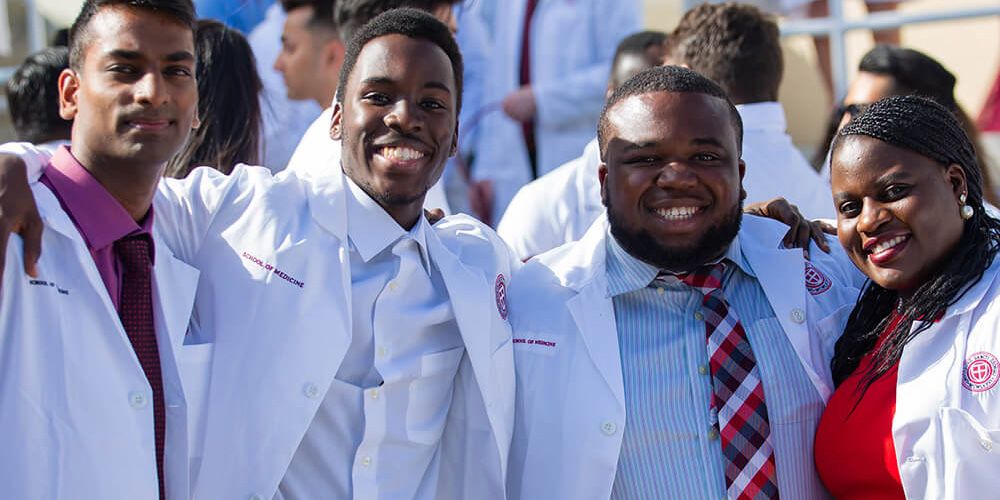Being a high achiever is part of who you are as a pre-med student. You ascended to this point in the application journey by working hard and succeeding academically, so it makes sense that you’re only interested in colleges with good medical programs. So how do you go about finding the right institutions? Good medical schools all share a number of things in common, so be sure to keep them in mind as you evaluate options.
6 Things good medical schools have in common
Before you start looking for a program that fits your personal preferences, make sure you’re focusing on good med schools with the following elements.
1. High academic standards
More and more medical schools are moving toward a holistic admissions process to ensure they’re accepting all students who would make great physicians. That said, solid academic metrics are still an important indicator of your preparedness for the med school journey ahead. Quality medical institutions know this, which is why they have high standards.
When comparing schools, it’s wise to examine average GPA and MCAT scores. You can review the MCAT and GPA grid from the Association of American Medical Colleges (AAMC) to see where each institution falls on the spectrum. This can help ensure you’re only focusing on the best institutions.
2. A rigorous curriculum
Good medical schools help prepare students for their future careers by pushing them to retain a substantial amount of material and continuously improve their clinical skills. Clearly, you need to scrutinize each program’s curriculum to determine whether it will provide the types of challenges you need to excel.
Attending SGU has been the adventure of a lifetime, It was incredibly challenging, but so worth it in the end.
– Shayda Pedram, MD SGU ’20
Consider the four-year MD program at St. George’s University (SGU), for example. The first two years include lectures, small group discussions, and regular multiple-choice question sessions that mimic the United States Medical Licensing Examination (USMLE) Step 1. The final two years are devoted to clinical rotations in the US and the UK, which immerse students in patient care and challenge them to work in a professional manner.
3. Graduate outcomes
Student performance is perhaps the ultimate gauge of whether a program is among the good med schools you should consider. Consider both licensing exam scores and residency placements.
When it comes to evaluating each school’s USMLE Step 1 performance, you always want to make sure the vast majority of students are passing the exam. This is a clear indicator that the program is providing a quality education that adequately prepares students for medical practice. As for SGU students, 92 percent of first-time test-takers earned a passing score over the last three years.1
Residency placements are also important to assess. For example, 93 percent of eligible US graduates from SGU who applied for US residencies over the last three years obtained a residency placement.2 Additionally, these graduates matched into 20 different specialties ranging from surgery to pathology.

4. Abundant resources for students
Receiving an education that pushes you is clearly important, but it’s just as crucial that you’re able to access an array of student support services designed to help you succeed. Look for options that go beyond the basics, such as academic advising and health care. At SGU, for instance, the Department of Educational Services (DES) offers a whole host of programs designed to help students succeed academically. Depending on the school, you may have access to offerings like the following:
- Learning strategies assessments
- Group review sessions
- Time management assistance
- Exam performance reviews
- Mentoring
- USMLE-specific preparation
- Residency planning
- Language services
5. Exceptional facilities
Colleges with good medical programs recognize that the evolving nature of the field means it’s imperative to invest in the latest advances. SGU, for instance, has a simulation center that incorporates standardized patients and introduces students to new techniques and instruments. SGU’s facilities also include libraries, labs, lecture halls, a fitness center, and even a research institute.
Of course, a robust online learning environment can be just as important. In the event that you need to complete some portion of your program remotely, you’ll need access to technology like live-chat capabilities and virtual specimens.

6. Loyal alumni
It’s in your best interest to speak with graduates from the medical schools you’re considering because they can tell you more about those programs than anyone else. Ask admissions departments if they can put you in touch with a few graduates who can speak to you about their experiences. When it comes to SGU, here is just a taste of what alumni have to say:
“I honestly have to thank SGU to the fullest extent for preparing me so well for my future in medicine.”
– Shivantha Amarnath, MD SGU ’17
Start your search for a good medical school
You’re now equipped to start narrowing your final list of good colleges for doctors. As you’ve been doing your research, you may have noticed that St. George’s University seems to meet the criteria you’ve been looking for. Learn more about what it has to offer in our article “10 Surprising Facts About the SGU School of Medicine.”
*This article was originally published in 2019. It has since been updated to include more recent information.
1Average of 2019, 2020, 2021 scores. First-time pass rate is defined as the number of students passing USMLE Step 1 on their first attempt divided by the total number of students taking USMLE Step 1 for the first time. In order to be certified to take USMLE Step 1, students are required to pass all basic sciences courses.
2Average of 2020, 2021, 2022 residency placement rate. Residency placement rate is defined as the total number of students who obtained a US residency divided by the total number of students who applied to a US residency program in a given year (as of May 2022).


